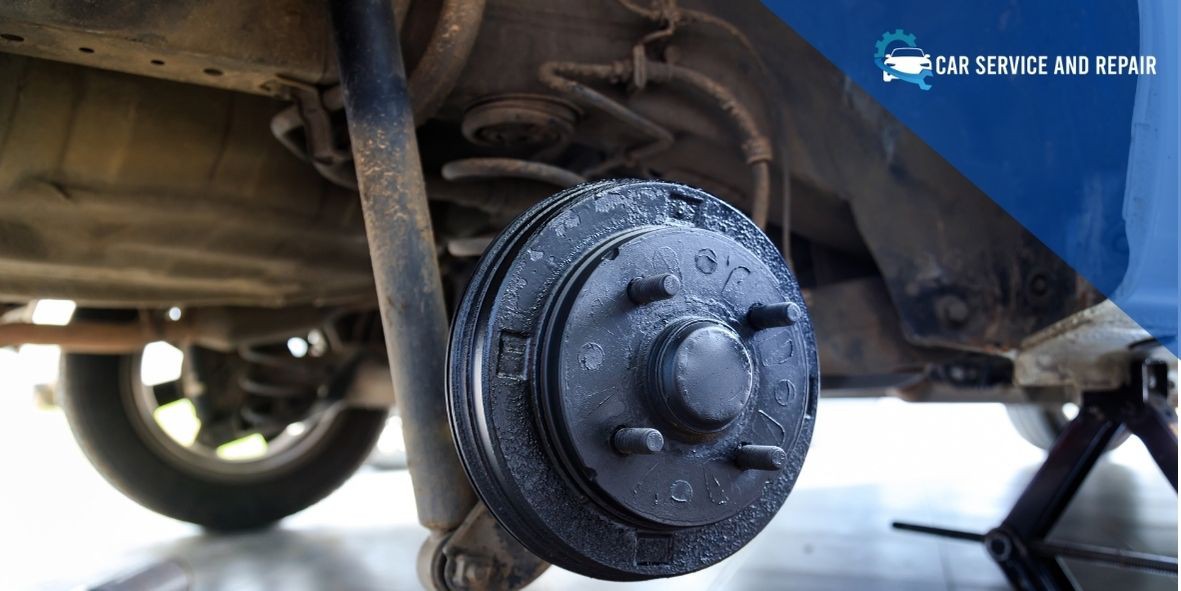
4 Symptoms of a Damaged or Faulty Brake Drums & Shoes
Drum
brakes are a typical sort of braking mechanism that may be found on many
vehicles' rear wheels.
While
they slow the car in the same way as disc brakes do, they do it in a somewhat
different way. Brake drums employ wheel cylinders to force brake shoes on the
interior of a brake drum to slow the wheel, rather than calipers to press
pads onto a disc.
Because
they rely on friction and contact to work, they ultimately wear out and need to
be replaced. Check your vehicle's MOT status
and get defective brake drums fixed or essential parts replaced, since this
will result in a MOT failure.
The
brake drums and shoes are essential parts of the braking system of a vehicle.
Braking drums and shoes are more frequent on older cars that do not have a
brake disc system.
The
brake drums act as the brake discs, while the brake shoes act as the brake
pads. Each wheel is equipped with a brake drum, which resembles a bowl-shaped
component.
The
brake shoe pulls on the brake drum as the driver presses down on the brake
pedal, causing friction and slowing the spinning wheel down. It's an idea
that's similar to disc brakes, but it's an earlier form of the concept.
Brake
drums frequently create a few signs that might notify the driver that a problem
has occurred when they go bad or begin to have a problem. The following are
four signs that your brake drums and shoes are worn out:
1. Weak Brakes - If the car
takes longer to slow down or stop when you step on the brake pedal, you may
have an issue with your brake drums and shoes. Although additional issues with
the braking system may exist, the most common reason focuses around these two
components. If you have a newer vehicle with disc brakes, however, the
equivalent would be defective discs and pads. If you perform a MOT history check on your car
and it has previously failed on the braking system, the failure section will
clearly specify which portion of the braking system was at fault.
2. Brake Noises - When you
step on the brake pedal, you will hear noises in addition to weak brakes.
Because brake drums aren't very excellent at absorbing heat from braking, this
will develop over time. As a result, heat builds up, putting strain on the
braking system. The brake shoes will then scrape against the drums, resulting
in irritating scraping noises. This could lead to a MOT failure so check MOT status of your
car and get the braking system diagnosed and repaired.
3. Brake Pedal Vibrations -
As previously stated, as you continue to use your brakes, the brake drums will
wear down. When they're worn down enough, you'll notice vibrations emerging
from the brake pedal when you step on it. If there are no other indications,
you may not think it's a huge concern, but if you begin experiencing brake
performance issues, you'll have no option but to have your drums and shoes
replaced. Of course, you should treat brake pedal sensations as an early
warning indication that your braking system needs to be evaluated for issues
with the drums and shoes.
4. Loose parking brake - A
loose parking brake is another indicator of defective or failing drum brakes.
If your vehicle has drum brakes and you check MOT history,
you'll see that a faulty parking brake is a typical reason for a failed MOT
test. The parking brake may fail as the shoes on the drum brakes wear down and
are unable to push against the inside of the drum as easily. If the drums are
worn, the car may slip just a few inches after the parking brake is applied.
It's possible that a damaged brake wire, as well as maybe old shoes, are to
blame. You should have the vehicle thoroughly inspected by a trained
technician if you believe this is the case.
The
brake drums & shoes are a vital component that is necessary for the
vehicle's braking system to function properly. As a result, if you believe
they're worn or have a problem, get your braking system evaluated by a skilled
technician to see if the drums or shoes need to be replaced.